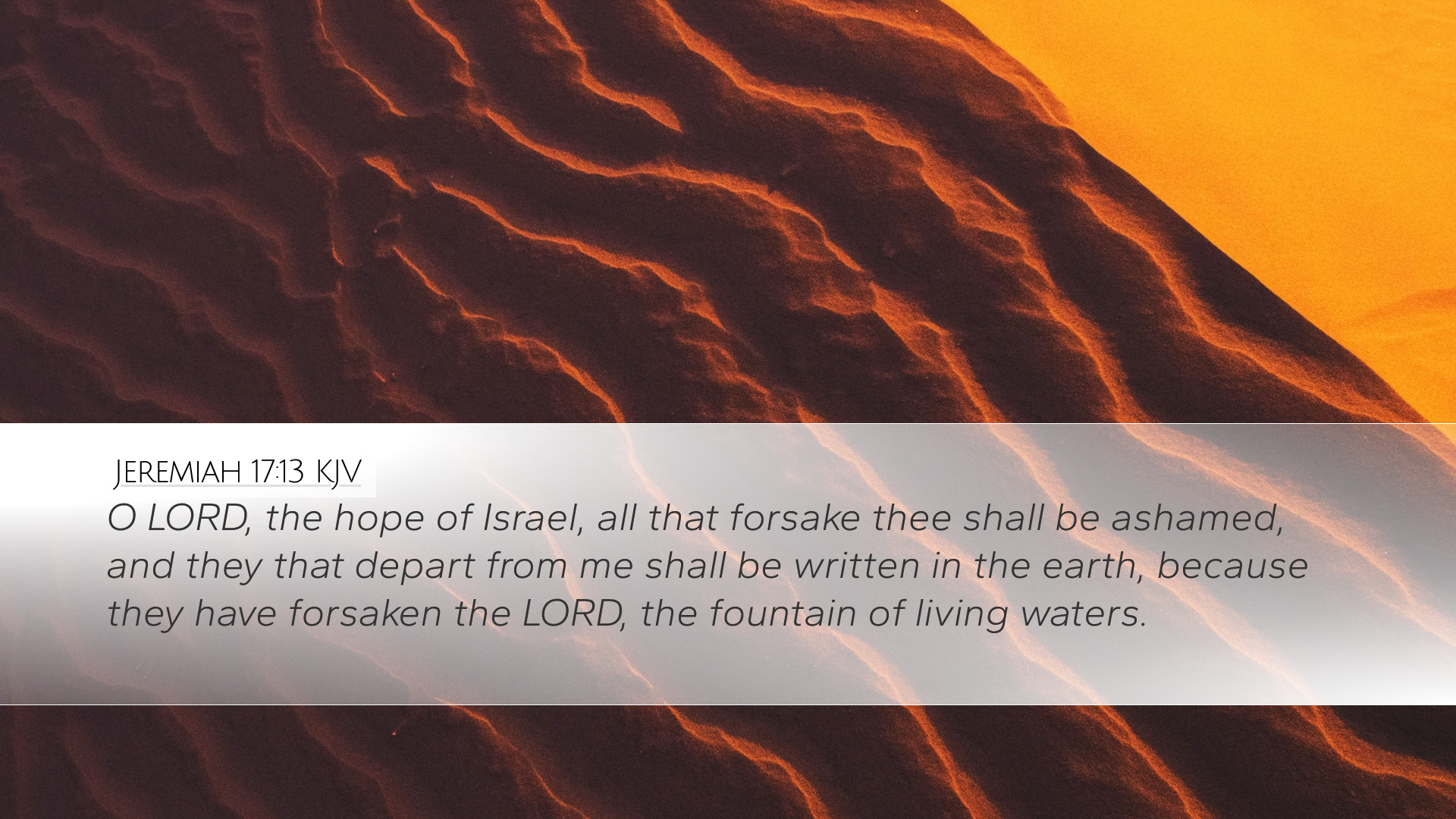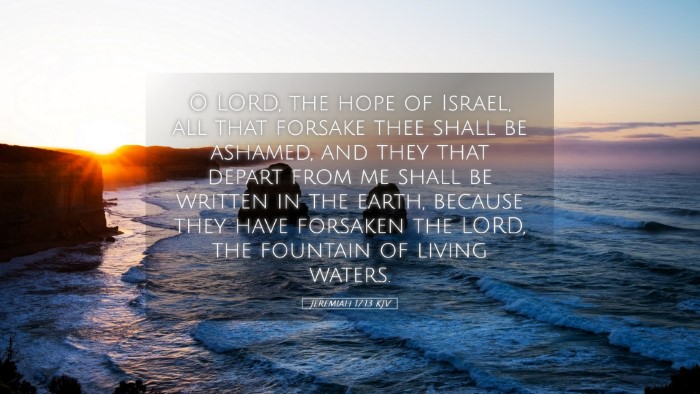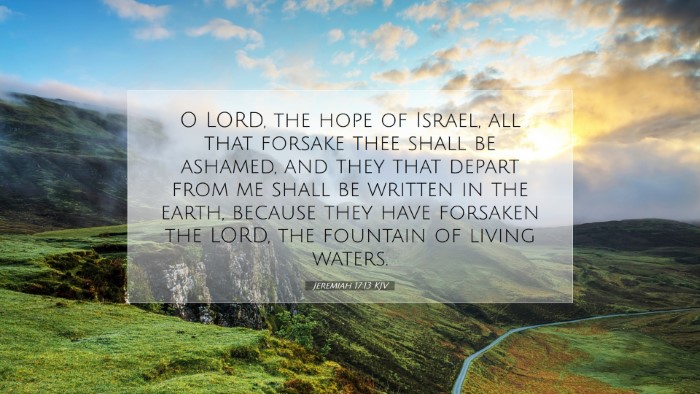Commentary on Jeremiah 17:13
Jeremiah 17:13 states, "O LORD, the hope of Israel, all that forsake thee shall be ashamed, and they that depart from me shall be written in the earth, because they have forsaken the LORD, the fountain of living waters." This verse encapsulates the dire consequences of turning away from God, juxtaposed with the riches of divine hope.
Introduction
This commentary integrates insights from renowned public domain scholars, including Matthew Henry, Albert Barnes, and Adam Clarke, to explore the profound implications of this verse. These insights provide a deeper understanding of the nature of God as the source of hope and the repercussions of forsaking Him.
The Lord as the Hope of Israel
Jeremiah begins by affirming God as the perpetual source of hope. Matthew Henry elaborates that the term "hope" signifies not only expectation but also trust in God's promises. The phrase "the hope of Israel" indicates that God is the only reliable source of security and salvation for His people. This hope is foundational for believers, especially in times of turmoil.
Consequences of Forsaking God
-
Shame and Regret:
According to Albert Barnes, forsaking God leads to shame. Those who turn their backs on the Lord will ultimately discover that their pursuits are futile, resulting in a profound sense of regret. This theme resonates throughout Scripture, emphasizing the eternal consequences of rejecting God.
-
Written in the Earth:
Adam Clarke interprets "they that depart from me shall be written in the earth" as an indication of their transient and meaningless existence. The imagery suggests that those who forsake God will not have their names inscribed in the Book of Life but will instead meet an earthly end—one that lacks lasting significance.
-
The Nature of Departure:
Departure from God, as outlined by Henry, is often gradual and may begin with a mere neglect of duties or a slight deviation from faith. This process can escalate, leading to a full abandonment of the Lord. Emphasis should be placed on vigilance in one's spiritual walk to prevent such decline.
The Fountain of Living Waters
The metaphor of God as the "fountain of living waters" signifies the spiritual sustenance and life that He provides. John 7:37-39 echoes this sentiment, illustrating the life-giving aspect of God's presence. Barnes highlights this image to show that true fulfillment and vitality are found only in God.
Clarke adds that this reference also positions God against idols and false deities, which cannot provide true satisfaction. God's invitation to drink from this fountain urges individuals to seek Him continually for spiritual refreshing.
Theological Implications
Theologically, this verse draws a clear distinction between the eternal and the temporal. It challenges readers to reflect on their relationship with God and the eternal ramifications of their decisions. As Henry asserts, the verse serves to remind believers of their duty to cling to God, the foundation of their hope, amidst life's uncertainties.
Additionally, the phrase "fountain of living waters" emphasizes God's active role in the believer's life, contrasting with the deathly emptiness found outside of His presence. This highlights the need for dependent faith, bringing to mind verses in the New Testament that re-emphasize this life-giving relationship with Christ.
Practical Applications for Believers
-
Encourage Dependence on God:
Believers must realize their need for God in every aspect of life. Pastors and leaders should guide their congregations towards recognizing God as their ultimate source of hope, encouraging them to continually draw from His well of grace and mercy.
-
Warning Against Idolatry:
The contrast between the "fountain of living waters" and forsaken paths highlights the idolatry that can infiltrate lives. Churches should maintain a focus on teaching against idols—be it materialism, self-reliance, or cultural pressures—that lead individuals away from God.
-
Nurturing Spiritual Growth:
This passage conveys the importance of nurturing one's spiritual life. Regular engagement with Scripture, prayer, and communal worship fortifies believers against the temptation to depart from God. Churches must prioritize spiritual nourishment.
-
Instilling Hope:
Jeremiah's declaration of God as the hope of Israel offers a profound message of hope amidst despair. This encourages believers to share the gospel message, proclaiming the hope found in Christ to a world in need of restoration.
Conclusion
In conclusion, Jeremiah 17:13 serves as a powerful reminder of God's role as the hope of Israel and the source of living waters. The weight of forsaking God bears fruit in shame and regret, while the riches of His presence offer life and hope. As believers, it is paramount to remain anchored in our relationship with God, ensuring that we are continually nourished by the living waters He provides.


